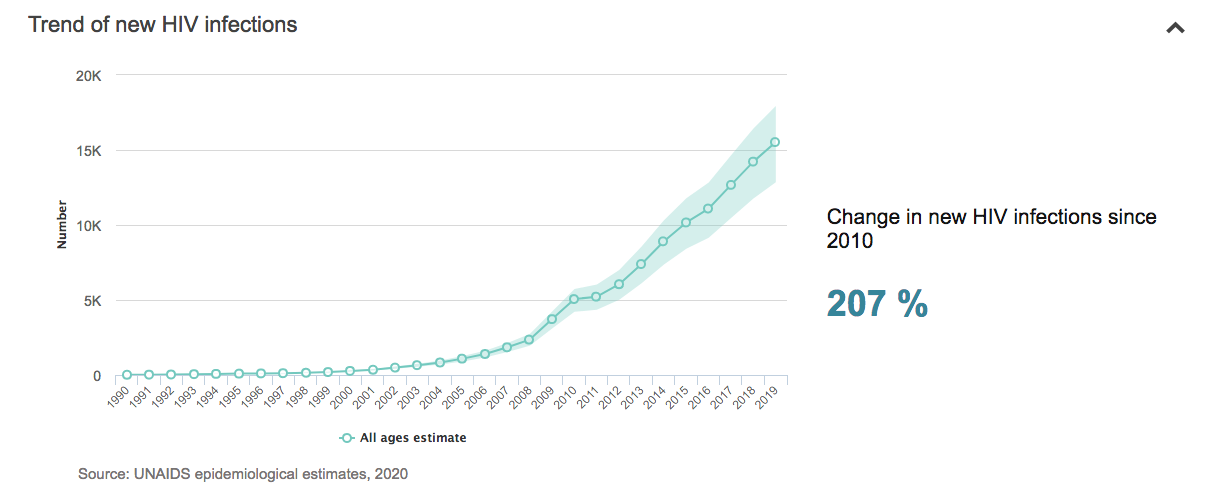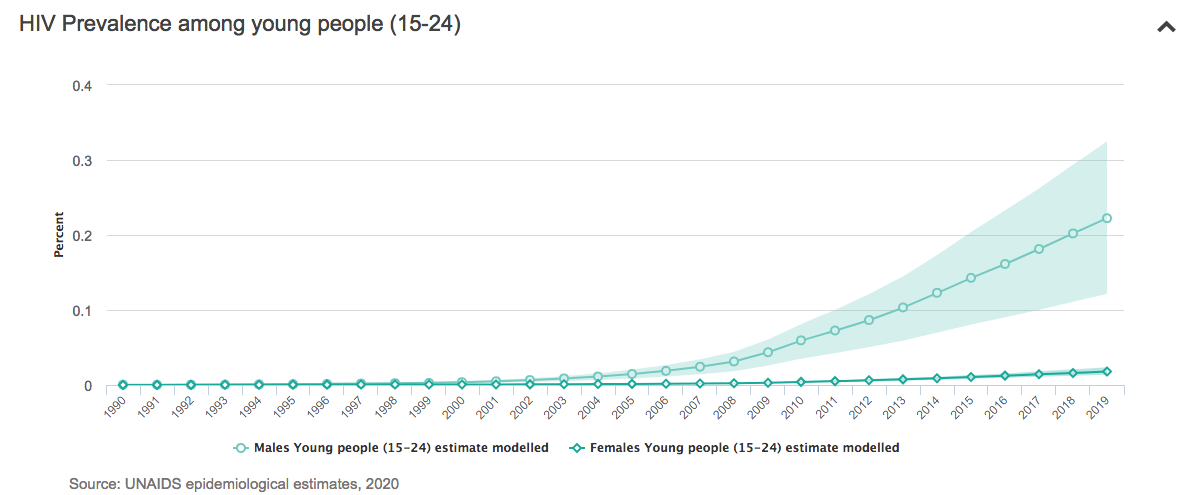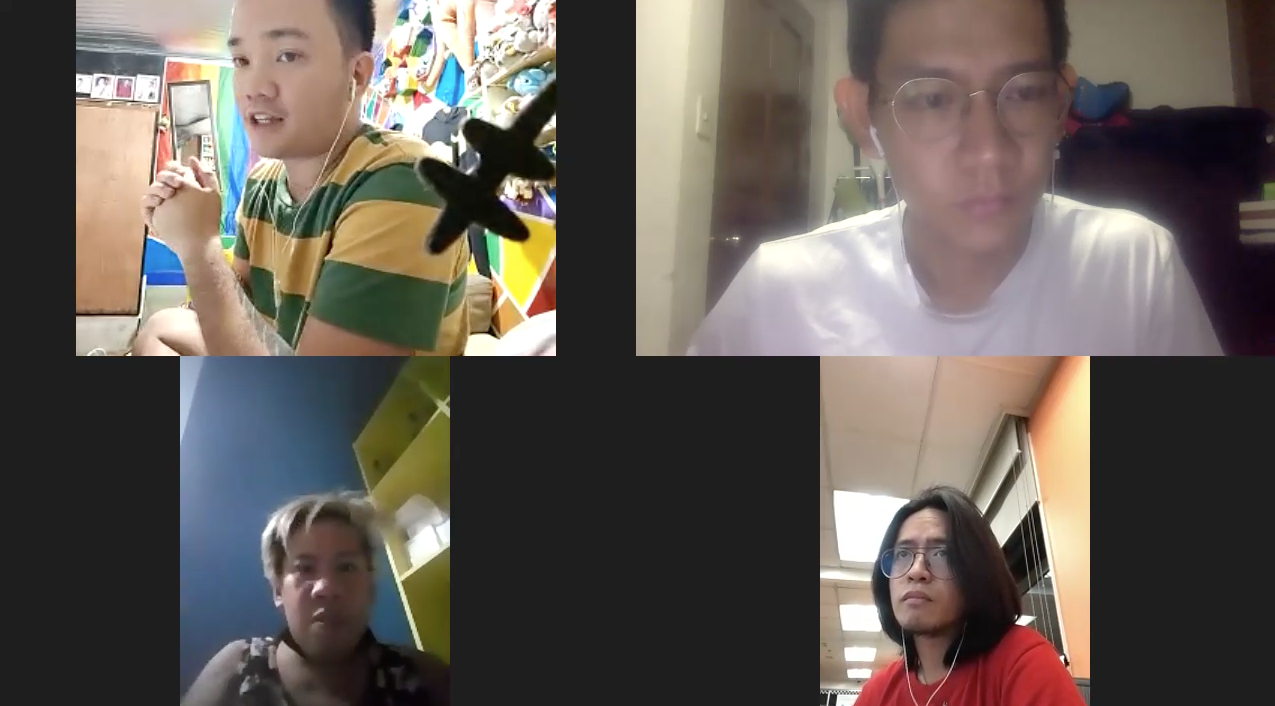World AIDS Day
As their numbers grow, people with HIV in the Philippines still face a host of challenges
In 2019, there were an estimated 38 million people living with HIV (PLHIV) around the world, and 97,000 of those were Filipinos. Locally, the number of Filipinos being infected with HIV continues to rise year-on-year.
With the COVID-19 pandemic, this year’s World AIDS Day commemoration became a call for global solidarity to maintain HIV services and thank those who are working to end AIDS.
The World Health Organization noted that the public health aspect of HIV may have worsened this year due to the profound global challenges brought by COVID-19.
According to a report by the Joint United Nations Programme on HIV and AIDS (UNAIDS), the Philippines has an estimated 16,000 new cases of HIV in 2019. There were also 1,600 reported deaths among adults aged 15 and up.

Since 2010, there has been a consistent upward trend in new HIV infections in the country and its prevalence among young people (aged 15 to 24) also continues to rise, especially with men.
The call around the world to stand up against the stigma and discrimination on PLHIV resonates in the country as the World Health Organization calls for people to “educate yourself, educate others, listen to people who live with HIV, and speak out against stereotypes.”

In the past, identities of PLHIV have usually been shrouded, presented as mere silhouettes with distorted voices when they tell their story in the media. But today, with the advent of social media, more and more voices are being heard, famous faces are coming out to tell their story, and even beauty queens are making HIV and AIDS awareness part of their advocacy.
As the cases of HIV continue to rise, the PLHIVs who make it their life purpose to advocate helping educate the public are also growing in number.
For Kael Mata, a 29-year-old community outreach worker at the Pasig City Treatment Hub, the community’s misconceptions about PLHIVs are slowly decreasing due to more understanding about the situation.
“I believe the stigma and discrimination start from misconception, from ignorance,” he shares with PhilSTAR L!fe.
However, Mata, who was diagnosed with HIV in 2014, pointed out that even though more PLHIVs are coming out to help educate the public, there is still much work to be done to further educate the public.
Eros de Vera, a volunteer for The Red Whistle, believes it is now the younger generation who are more open to engage in conversations about HIV because “they are open to being corrected and being taught."
"compared to those who are older, who stick to their traditional beliefs. [The youth] are one of the best allies of PLHIVs right now,” said de Vera
De Vera, who has been living with HIV since 2009, said that the more people engage in open conversations about sex education and about HIV, the more they will know how to take care of themselves.
“They are a good way to open up the doors to opportunities on how to eliminate discrimination and remove misconceptions,” he says. “Like in the Philippines, most of them are contracted through unprotected sex, but there are other ways to contract it. And majority of the people who have been diagnosed are men who are engaging in sex with men, but it does not end there. There are straight men and women who have HIV, too,” said De Vera.
In the recent report by UNAIDS, out of the 97,000 reported cases of HIV in the Philippines, 91,000 of them are men aged 15 and over, while women aged 15 and over make up 5,800 of the figures.
Cleo Abenir, who was diagnosed with HIV 16 years ago, made it her life mission to help people by working in a shelter for PLHIV. Now living for almost two decades with HIV, she knows that every PLHIV could each have different experiences in the family or the community.
“My experience being PLHIV is not perfect but even though I went out in Eat Bulaga!, I never experienced any discrimination from my neighbors, my childhood friends, my classmates. Their comments were all positive,” said Abenir, who, with Kael and Eros, participated in Eat Bulaga’s “Bawal Judgemental” segment that tackled topics about people living with HIV.
De Vera, who first came out publicly in 2016 through a local TV program, also had a similar experience. “People in the office and the community were actually surprised that I have been living with the virus for a very long time (around eight years at the time). I didn’t feel discriminated, I guess because one of the reasons is I have a strong personality so if people are tattling about my HIV status, maybe they do it not in front of my face.”
Mata said he also knows about the hardships that a PLHIV undergoes, something he experienced first-hand. It took him two years before he accepted his situation and started getting medication. “Two years ko tinakasan kasi ang alam ko noon sa HIV, mamamatay na ako (I evaded it for two years because I thought with HIV, I will just die),” he said.

For five years, Mata battled HIV alone as he was estranged from his family. But before he came out in Eat Bulaga!, he asked for his family’s approval first as he was concerned that it would be his family who will take the brunt of the stigma and discrimination. In the end, they were all supportive and rallied behind him.
“Nung niyakap ako ni mama sa Eat Bulaga!, yun ang nagpawala ng nararamdaman kong pain sa buhay. Kahit HIV ang sumira at nagtanggal ng ibang pangarap ko sa buhay, binuo naman niya ang nawawala kong pagkatao at binuo niya ang family ko (When my mom embraced me in Eat Bulaga!, that was what took away the pain in life. Even though HIV destroyed my hopes and dreams, it made me complete and made my family whole). It showed me my purpose as a human and I helped myself and the community that I am in.”
Mata is aware that there are a number of PLHIVs who have all the support from the community and the family but still chose to give up on life. Though be believes that advocates like him can do more to help others, it would still be much better if laws and programs are passed to address the problem.
“I’m glad that the RA11166 is being amended but there is a little bit of disappointment because the policies and programs in it have not been implemented 100% with some treatment facilities,” Kael notes.
Included in the Philippine HIV and AIDS Policy Act of 2018 (Republic Act 11166) is a separate funding for the Department of Health for HIV/AIDS programs. Testing, medication and confinement for HIV/AIDS are covered by PhilHealth under the law.
According to UNAIDS, as of June 30, the Philippines has 45,390 people who are receiving the antiretroviral therapy (ART) that is essential in suppressing the HIV virus and stopping the progression of the HIV disease.
While still in a pandemic, access to ART and other supplies needed by PLHIV is limited, which pushed non-governmental organizations like Project Ribbon to ensure the continuity of HIV services to key populations through its “Love on Wheels” initiative. The “Love on Wheels” project makes use of electric bikes to help PLHIV through door-to-door antiretroviral delivery, HIV screening, and transportation of frontliners among others.
The Love on Wheels is currently available in Manila, Marikina City and San Juan City.
For now, Mata, De Vera and Abenir will continue supporting PLHIVs, educating the community and combating all forms of stigma and discrimination. For their fellow PLHIVs, these are what Kael, Cleo and Eros have to say.
“Our HIV status does not define us as a person. Let’s define HIV. Let’s choose our self and live because at the end of the day, we are bigger than the virus,” said Mata.
“Bilang isang HIV positive, huwag mawalan ng pag-asa. Laban lang. Tanggapin mo lang. Habang nabubuhay ka, gawin mo lahat ang kaya mong gawin. HIV lang yan, wag kang papatalo (If you’ve HIV positive, don’t lose hope. Continue the fight and accept it. As long as you’re alive, do everything that you can do. It’s just HIV, don’t let it defeat you),” noted Abenir.
“HIV is not a life sentence. I hope to be one of the faces who will help bring about change not just health-wise but helping out in eradicating the stigma towards PLHIV,” De Vera said.


